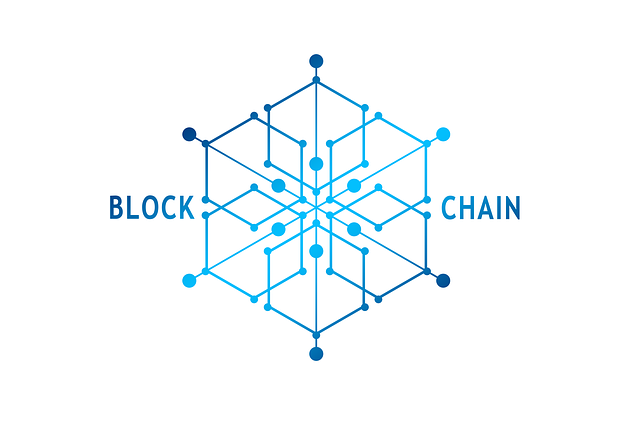Are you looking to get into the blockchain industry but need help figuring out where to start? With the rise of digital currency and financial applications, businesses of all sizes are beginning to explore new opportunities in distributed ledger technology. Blockchain is here and changing everything, but understanding its implications can be complex. That’s why having software that can help you manage your blockchain development services is a must! In this blog post, we will discuss some of the best software options available for managing blockchain projects, so you can quickly and easily take advantage of this revolutionary technology.
Why is Blockchain Popular?
Blockchain technology is gaining popularity because it enables secure, traceable, and immutable transactions between two parties. It is a distributed ledger technology that records data in a safe, encrypted manner across multiple computers, preventing any malicious changes. This makes it virtually impossible for anyone to tamper with or manipulate the information for their own purposes.
In addition, blockchain technology is being used to facilitate blockchain smart contract development services. Smart contracts are self-executing agreements between two parties that are pre-programmed and stored on a computer network. They enable the swift exchange of assets or data without needing third-party intermediaries such as banks or brokers, reducing costs and eliminating fraud risks associated with traditional contracts.
Another advantage of blockchain technology is that it has the potential to blockchain software development services. The distributed nature of blockchains makes them much more secure than centralized solutions, making them an attractive option for businesses looking to safeguard their data.
Finally, the decentralized nature of blockchains makes them attractive to everyone, from individuals to large organizations. Eliminating intermediaries allows for faster and more efficient transactions that are free of manipulation. This has led to increasing blockchain app development services being built on top of blockchain technology, making it one of the most promising technologies today.
In conclusion, blockchain technology is becoming increasingly popular because it enables secure, traceable, and immutable transactions between two parties. It also facilitates smart contracts, reduces fraud risks associated with traditional arrangements, helps more cost-effective transactions, and provides a secure, decentralized platform that individuals and large organizations can use.
How Does Blockchain Technology Work?
Blockchain technology creates a distributed ledger or database shared among all the computers in a particular network. This ledger records transactions, such as cryptocurrency transactions, and stores them in blocks. Each block contains cryptographic hashes of the previous transaction and a timestamp to ensure its authenticity.
This data is encrypted using cryptography and stored in the blocks. Each block is then stored in a chain, which represents the entire transaction history of the ledger and provides an immutable record of all transactions that have taken place on the network.
When a new transaction is initiated, it is broadcasted to all computers in the blockchain network, which use algorithms and consensus protocols to verify that this transaction is legitimate. Upon receipt of the transaction, it is added to a new block which is then added to the blockchain.
Once this process is complete and all parties involved in the transaction are satisfied with its legitimacy, the ledger confirms that the transaction has taken place and stores it forever on the blockchain.
Types of Blockchain
Blockchain technology is revolutionizing the way businesses and organizations operate, providing a secure and transparent platform for data storage and transaction management. Several types of blockchain networks are available, each with unique features and capabilities. Here’s an overview of the three main kinds of blockchains:
Public Blockchains: Public blockchains are permissionless and open to anyone who wishes to join. Transactions are recorded on a public ledger that is viewable by anyone, providing total transparency and accountability. This type of blockchain also has the highest degree of security due to its decentralized nature, making it difficult for malicious actors to tamper with or steal data.
Private Blockchains: Private blockchains are closed networks that restrict access to authorized participants only. Transactions on a private blockchain are confidential and secure and can be customized according to user needs. This makes them suitable for businesses that require a high level of privacy and control over their data.
Consortium Blockchains: Consortium blockchains are hybrid networks that combine elements of both public and private blockchains. They provide the same level of security as public blockchains but with the added advantage of limiting transaction access to a select group of participants. This type of blockchain is ideal for organizations that need privacy and control over their data but also value the openness and transparency offered by public blockchains.
No matter which type of blockchain you choose, it’s important to understand the features and use cases associated with each to decide which platform best suits your organization. With the right knowledge and insight into these different types of blockchains, you’ll be able to leverage this technology to revolutionize how your business operates.
The Process of Transaction
The transaction process in the blockchain is more complex than it may seem. Every transaction within the blockchain must go through a series of steps to ensure accuracy, reliability, and security before it is approved and completed. These steps include:
1) Requesting a Transfer: The first step requires the user to create a transfer request that includes the amount being transferred, the sender’s blockchain wallet development services address, and the recipient’s wallet address. This request will be broadcasted to all nodes in the network for verification and approval.
2) Verification by Nodes: After receiving a transfer request, all nodes connected to the network must verify its authenticity. To do this, they use algorithms called consensus protocols which require multiple checks and balances to be in place before the transaction is approved.
3) Adding the Transaction to a Block: Once the nodes have verified that the transfer request is legitimate, they broadcast an approval message to all nodes on the network. This allows for the transaction to be added to a block of transactions which will then be linked together via a chain of blocks known as a blockchain.
4) Mining and Processing Transactions: Blocks are mined by computers on the network that solve complex mathematical problems to find valid proof-of-work solutions. Once these solutions are found, each block is cryptographically secured and added to the chain, confirming all transactions.
5) Finalization of Transaction: Once all blocks have been mined and processed, the transaction is finalized. At this stage, all nodes must agree that the transaction has taken place and update their records accordingly. This marks the completion of the transaction.
Advantages and Disadvantages of Blockchain
Advantages of Blockchain:
- Security: Blockchain technology is designed to be highly secure, with the added benefit that once data is recorded on a blockchain, it cannot be changed, creating an audit trail with immutable records of all transactions.
- Transparency: Blockchain technology allows for complete transparency of all transactions, meaning anyone involved in a blockchain network can see what is happening at any time.
- Cost savings: Blockchain technology eliminates the need for third-party intermediaries when processing financial or other transactions, reducing costs significantly.
- Traceability: Blockchain allows for easy traceability of products and services, making it easier to track goods throughout their lifecycle and verify authenticity.
Disadvantages of Blockchain:
- Lack of regulation: The lack of regulation in the cryptocurrency markets makes it difficult to ensure consumer protection and guarantee fair pricing. Also, due to the decentralized nature of blockchain networks, governments have limited control over them which could lead to potential legal issues.
- Limited scalability: Blockchain networks can become congested and slow, making it difficult for them to scale quickly.
- Complexity: Blockchain technology is complex, making it difficult for businesses to implement and manage. It also requires a high degree of technical expertise to understand how the system works.
- High energy consumption: Mining cryptocurrency on blockchain networks requires a lot of energy, leading to high electricity costs that could potentially be passed on to consumers.
These are some of the advantages and disadvantages associated with implementing blockchain development services company. While there are many benefits, there are also potential risks that must be taken into consideration before investing in this technology. It is important to research and consider all aspects before taking action.
How to Invest in Blockchain Technology
It’s important to understand that blockchain technology is still in its early stages, and there are many unknowns regarding the future of this technology. With that said, here are a few ways you can invest in blockchain technology:
- Invest in cryptocurrencies like Bitcoin and Ethereum.
- Invest in companies that are working on developing new blockchain application development services.
- Invest in companies that are mining cryptocurrencies.
- Invest in startups working on new blockchain-based platforms or protocols.







